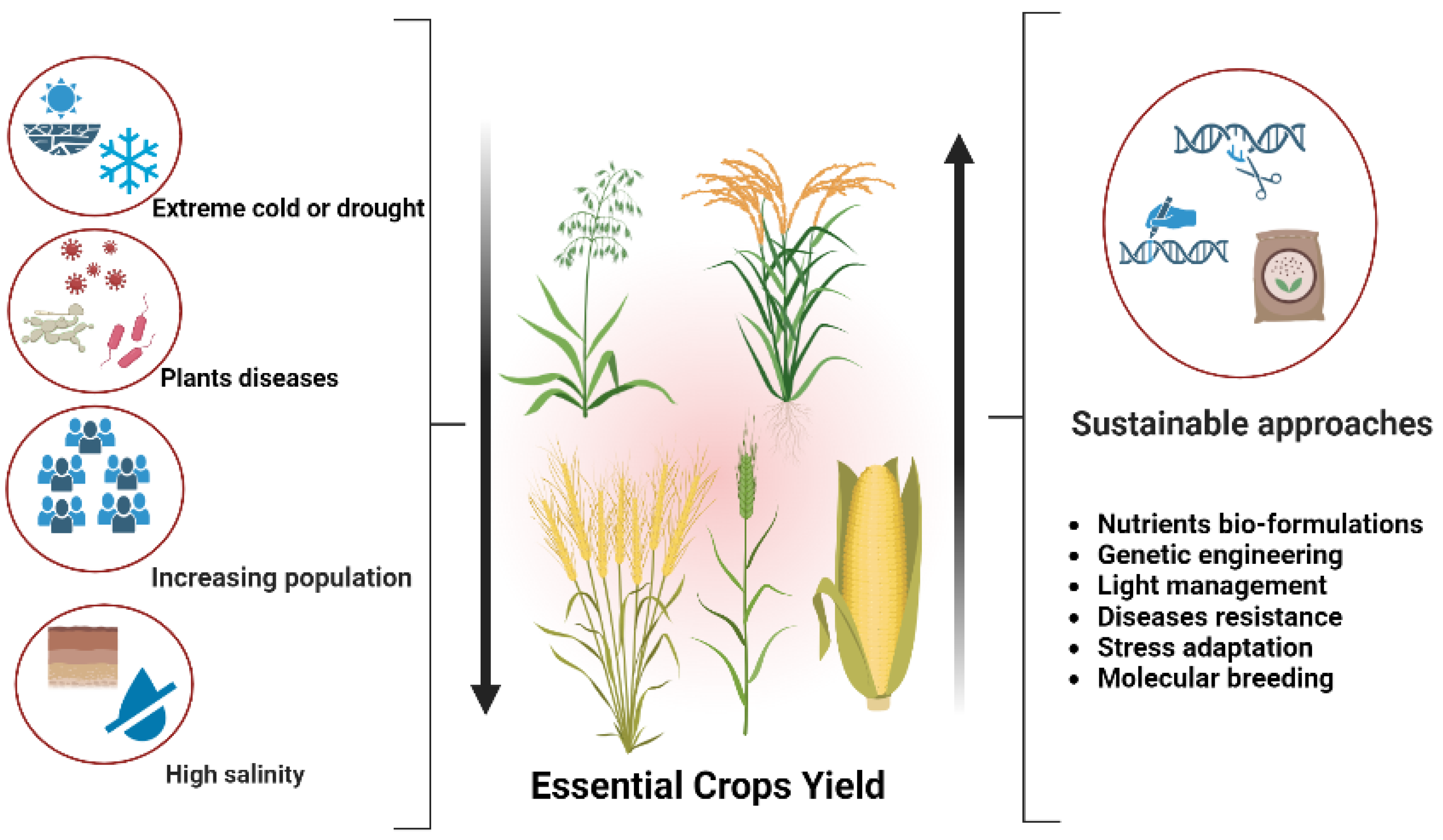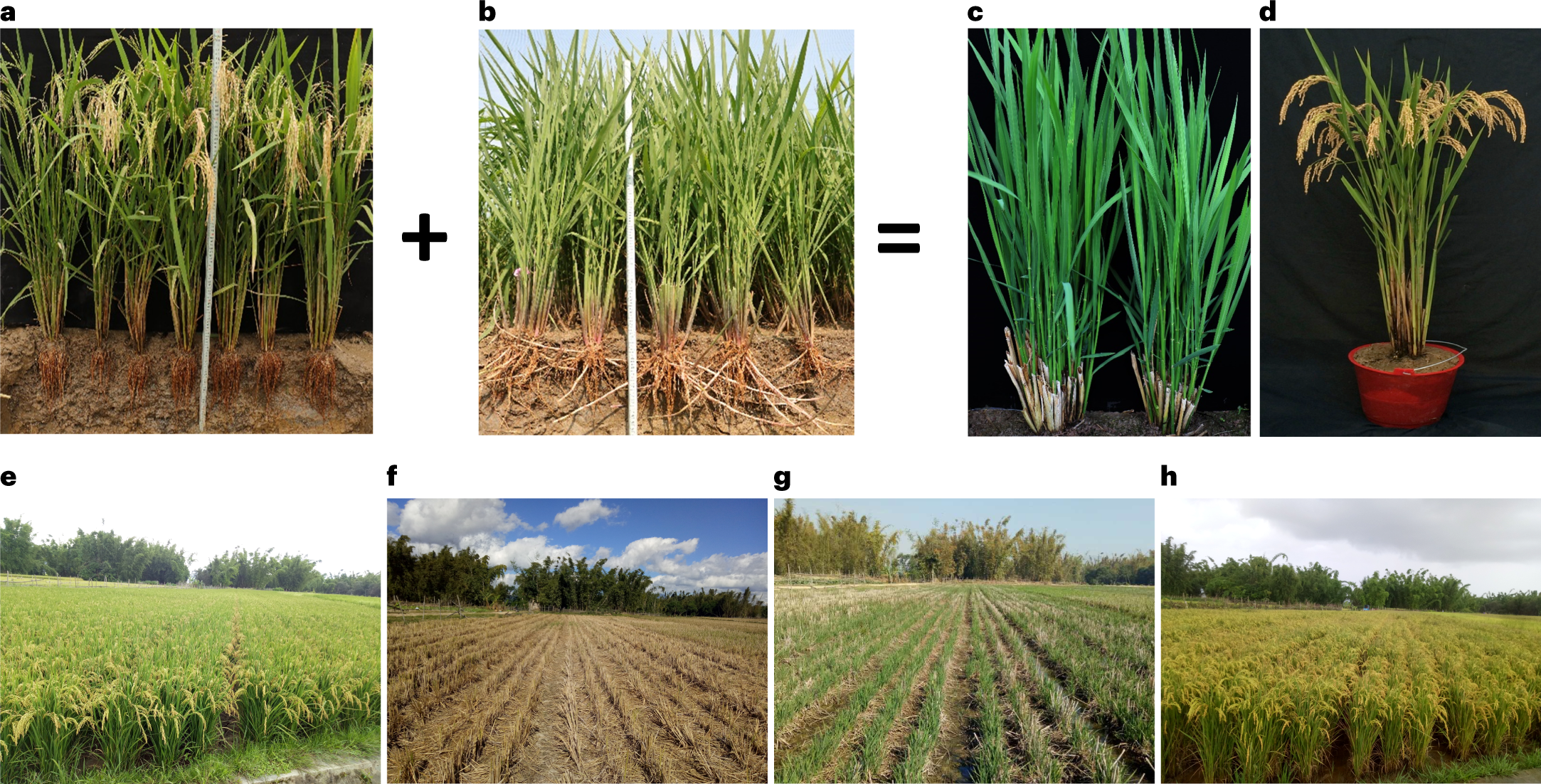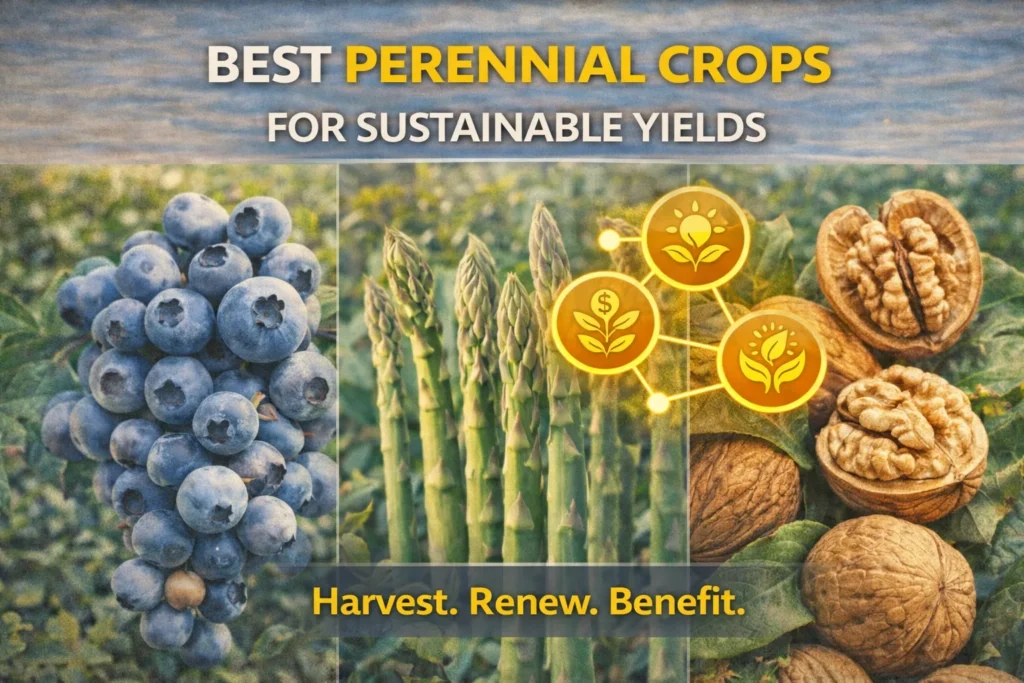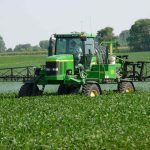Imagine stepping outside your door to find a garden that thrives year after year, delivering a bounty of produce with minimal effort. Sounds like a dream, right?
But this dream can be your reality with perennial crops. These resilient plants offer sustainable yields without the hassle of replanting every season. If you’re tired of high-maintenance gardening and want a solution that aligns with nature, you’re in the right place.
Discover how choosing the best perennial crops can transform your garden into a self-sustaining oasis. Keep reading to uncover the secrets to a flourishing, eco-friendly garden that keeps giving back.
Perennial Crop Benefits
Perennial crops offer numerous benefits for sustainable agriculture. These crops grow year after year, providing consistent yields without the need for replanting. They help maintain soil health and reduce erosion. Farmers also save time and resources, focusing on other vital tasks. Perennials contribute to biodiversity, supporting various organisms and ecosystems. Their deep roots improve water retention, reducing irrigation needs. This leads to more efficient use of natural resources. Discover the advantages of perennial crops for a greener future.
Improved Soil Health
Perennial crops enhance soil structure over time. Their roots penetrate deeply, stabilizing the soil. This reduces erosion, safeguarding nutrients and minerals. Healthy soil supports robust plant growth. It also reduces the need for chemical fertilizers. Long-term soil health benefits ecosystems and crop yields.
Water Conservation
Deep roots of perennial crops improve water retention. Less irrigation is needed, conserving vital resources. This is crucial in areas facing water scarcity. Efficient water use benefits farmers and the environment. Perennials adapt to varying moisture levels, thriving even in dry periods.
Reduced Labor And Costs
Perennial crops reduce the need for annual planting. Farmers save time and labor costs. Resources can be directed to other farming areas. This efficiency boosts productivity and sustainability. Perennials also lower expenses on seeds and planting equipment.
Biodiversity Support
Perennial crops create habitats for various species. They attract beneficial insects and pollinators. This promotes a balanced ecosystem. Biodiversity enhances pest control naturally. It ensures healthier crops and reduces chemical use.
Climate Resilience
Perennials are more resilient to climate changes. Their deep roots withstand harsh weather conditions. They thrive in varying temperatures, offering stable yields. This makes them suitable for unpredictable climates. Farmers benefit from reliable harvests each year.

Top Fruit Perennials
Discover the best perennial crops for sustainable yields. Fruit perennials like blueberries and raspberries offer reliable harvests every year. These plants are perfect for long-term gardening success and provide delicious, fresh fruits. Ideal for those seeking consistent and eco-friendly produce.
Top Fruit Perennials can be a game-changer for sustainable gardening. These plants offer consistent yields year after year, making them a smart choice for anyone looking to create a resilient garden. They reduce the need for annual planting, save time, and can be a delightful addition to your outdoor space.
Imagine walking out to your garden and picking fresh fruits from plants you nurtured years ago. The satisfaction is unmatched.
Here’s a closer look at some of the best options for perennial fruit crops.
Apple Trees
Apple trees are a classic choice for many gardens. They thrive in a range of climates and provide delicious fruit.
Have you ever tasted an apple from your own backyard? It’s sweeter and juicier than store-bought ones.
Consider planting varieties that are disease-resistant to ensure healthier crops.
Blueberry Bushes
Blueberries are not only tasty but also packed with antioxidants. These shrubs are relatively easy to care for once established.
Did you know you can grow blueberries in containers? This makes them perfect for small spaces or urban gardens.
Ensure they have acidic soil and ample sunlight for the best yield.
Cherry Trees
Cherry trees bring beauty and bounty to your garden. Their spring blossoms are stunning, and the fruit is a delightful treat.
Have you ever thought about how much money you could save by growing your own cherries? It’s a fun way to enjoy fresh fruit without breaking the bank.
Choose sweet or sour varieties based on your taste preference.
Pear Trees
Pear trees offer a unique flavor that’s hard to beat. They are hardy and can adapt to various soil types.
Imagine the joy of biting into a juicy pear you grew yourself. It’s a simple pleasure that gardening can bring.
Look for self-pollinating varieties if you have limited space.
Fig Trees
Figs are a fantastic choice, especially in warmer climates. They add a touch of the Mediterranean to your garden.
Have you ever grilled figs with honey? It’s a delicious and sophisticated treat that impresses guests.
Ensure good drainage and sunlight for optimal growth.
Plum Trees
Plum trees are versatile and can be used for fresh eating or cooking. Their vibrant color adds visual interest to your garden.
How about making plum jam from your own harvest? It’s a way to enjoy the fruits of your labor all year round.
Choose disease-resistant varieties to keep maintenance low.
Incorporating fruit perennials into your garden is a step towards sustainability. Each of these plants has unique benefits, and they all contribute to a greener future. Which of these fruit trees or bushes will you choose to start your perennial journey?
Nut-producing Perennials
Nut-producing perennials offer sustainable yields year after year. These crops require less maintenance and provide valuable nutrients. They are perfect for those seeking eco-friendly farming options.
Nuts are not just tasty snacks. They are packed with essential vitamins and minerals. Growing nut trees is a wise choice for long-term sustainability.
Almonds
Almond trees thrive in warm climates. They produce delicious, nutrient-rich nuts. Almonds are high in protein and healthy fats.
They need well-drained soil and full sunlight. Once established, almond trees can yield nuts for decades.
Walnuts
Walnut trees provide dense shade and nutritious nuts. Walnuts are rich in omega-3 fatty acids. They support heart health and brain function.
These trees prefer deep, fertile soils. They require regular watering during dry spells.
Pecans
Pecans are native to North America. They are loved for their sweet, buttery flavor. Pecans are excellent for baking and cooking.
Pecan trees need deep, moist soil. They can live for over a century, providing consistent yields.
Hazelnuts
Hazelnut bushes are compact and easy to manage. They produce small, flavorful nuts. Hazelnuts are rich in vitamins and antioxidants.
These bushes grow well in a variety of soils. They are a great choice for small spaces.
Chestnuts
Chestnut trees produce large, starchy nuts. They are great for roasting and baking. Chestnuts are gluten-free and nutritious.
These trees prefer well-drained, acidic soils. They can become a valuable food source for many years.

Perennial Grains And Vegetables
Perennial grains and vegetables offer sustainable yields for farmers and gardeners. These plants live for multiple years, providing harvests without replanting. This reduces soil disturbance and conserves resources. Choosing the right perennial crops can support ecosystem health. They also enhance food security. Let’s explore some popular options.
Perennial Grains
Perennial grains like Kernza are gaining popularity. Kernza is a wheatgrass with deep roots. These roots improve soil health and prevent erosion. Its grain is nutritious and versatile. Farmers appreciate its low input requirements. It thrives with less fertilizer and water.
Another option is perennial rice. This crop is cultivated in parts of Asia. It reduces the need for annual plowing. This decreases greenhouse gas emissions. Perennial rice also supports biodiversity in paddy fields. Its resilience to climate changes is notable.
Perennial Vegetables
Asparagus is a well-known perennial vegetable. It grows back every spring, offering fresh spears. It requires minimal care after establishment. Asparagus can produce for over 20 years. This makes it a long-term investment.
Rhubarb is another perennial favorite. Its tart stalks are used in desserts and sauces. Rhubarb plants are hardy and drought-tolerant. They thrive in diverse climates. Once planted, they return annually.
Jerusalem artichokes, or sunchokes, offer tuberous roots. These are delicious and nutritious. Sunchokes are easy to grow and require little maintenance. They can spread quickly, producing abundant yields.

Conclusion
Perennial crops bring long-lasting benefits. They require less maintenance and increase soil health. Their ability to grow back yearly ensures steady harvests. Farmers find them cost-effective and resilient. These crops adapt well to changing climates. Choose wisely for sustainability and yield.
Berries, herbs, and grains are excellent options. Each offers unique advantages and flavors. Experiment with different varieties. Discover what thrives in your area. Prioritize diversity to enrich soil and ecosystem. Sustainable farming starts with smart choices. Perennial crops pave the way for a greener future.
Embrace them for consistent and fruitful results.



